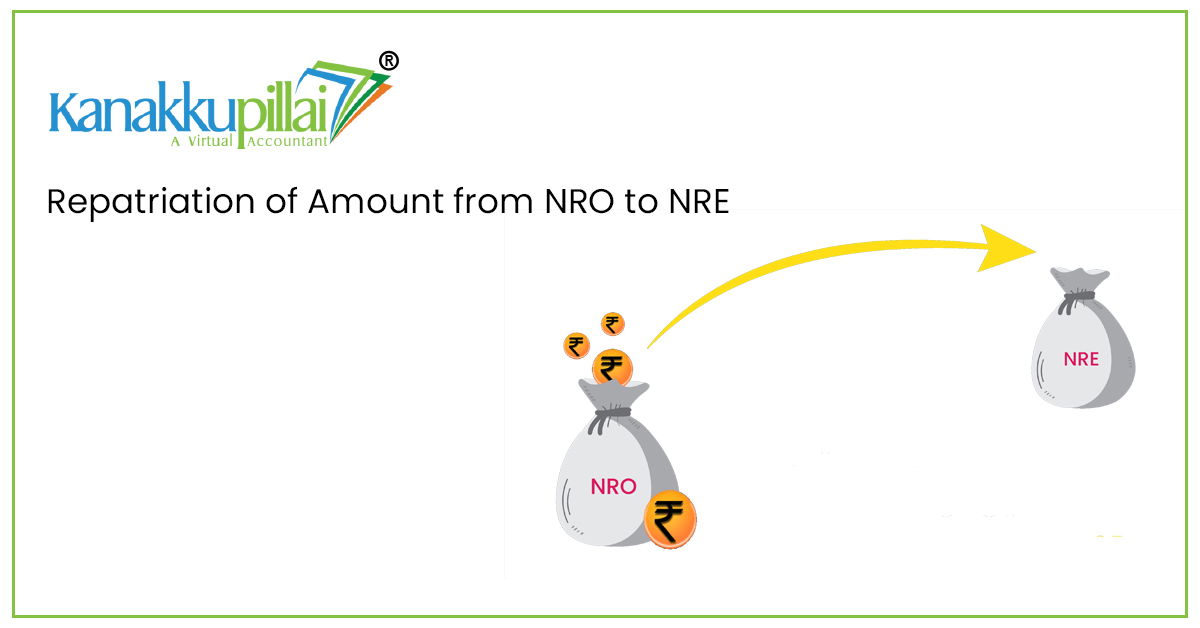Last Updated on July 30, 2025
NRO or Non-Resident Ordinary account will help a person maintain their income in the form of rent, dividend, or other income sources, such as profit from investments or property held in India. And here, the resident Indian and non-resident Indian can be joint account holders and hold the account together.
It even enables the account holder to receive the amount in Indian or foreign currency, but limits withdrawals to Indian rupees. And the funds available in an NRO account are not freely repatriable to any other currency or country used for income or profit that arises or accrues in India. The interest earned on the balance held in this account shall be taxable.
What is an NRE Account?
NRE account stands for Non-Resident External Account, and it is an account owned by a Non-Resident Indian for transferring foreign earnings to India. The interest earned on this account is not taxable or is tax-free, and can be opened by either one NRI alone or as a joint account with other NRIs. The deposit can be made in foreign currency and withdrawn only in Indian Currency. As the same is deposited in foreign currency and withdrawn in Indian Currency, the same is prone to exchange rate risks.
The differences between NRE and NRO accounts
- An NRE account is an account started by an NRI for depositing his or her earnings in a foreign country or foreign earnings. The NRO account is begun by the NRI for managing the income earned by him or her in India in the form of rent, dividend, interest, or such other forms.
- NRE accounts are exempt from tax. Neither the deposits nor the interest earned on the same shall be taxable in the hands of the assessee. At the same time, the interest which is earned on the NRO account deposit would be taxable in the hands of the assessee.
iii. A joint NRE account can be opened by an NRI only with another NRI. While the NRO account can be opened by an NRI (say, a close relative like brother/father) with another NRI or an Indian citizen
- For an NRI, the income that arises outside Indian can be deposited into an NRE or NRO account. But the revenue that arises in India can be deposited only into the NRO accounts.
- The withdrawal from both of these accounts, i.e., NRE and NRO, can be done only in Indian Currency. Thus, taking the case of an NRO account, if the deposit and withdrawal are made in INR, then there shall be no exchange rate risk. But in the case of an NRE account, there shall be currency rate fluctuations and thereby exchange rate risk as the deposit is made in foreign currency.
- In the case of an NRE account, you can transfer the funds to another NRE account as well as to another NRO account. But the funds in an NRO account can only be transferred to another NRO account but not to an NRE account.
Can funds be transferred from an NRO Account to an NRE Account by NRIs?
Yes, an NRI (Non-Resident Indian) can transfer his funds from an NRO Account to an NRE Account. And this is allowed by the Reserve Bank of India (RBI) up to USD 1 million during a year from an NRO Account to an NRE Account.
But for such transfer of amount or fund from the NRO Account to the NRE Account, the following documents will be required:
– A cheque that is signed and approves the transfer of funds from NRO to the NRE account
– FEMA (Foreign Exchange Management Act) declaration
– evidence of the source of funds
– Form 15CA
– Form 15CB – It is a form certified by the CA (Chartered Accountant). It contains details regarding the payment, like TDS rate, deductions, and applicability of the Double Taxation Avoidance Agreement.
Reasons due to which Funds are Transferred from NRO to NRE Account
There are several reasons why the funds may be transferred from NRO to NRE Account. The individual holding such an account may need to transfer the income in Indian currency and withdraw to meet investments and expenses in his preferred currency abroad or the preferred foreign currency.
An individual might need to maintain an NRO Account only for the purpose of collecting the Indian Income, and also manage all investments in an NRE account, which would provide you with the flexibility of full repatriation when in need or urgency for funds. And in the case of an individual who needs to access the funds in an NRO account in a currency other than the Indian Currency, then transferring it to an NRE account might be the best solution he could opt for.
Benefits offered by NRE Account
- FEMA does not impose any restriction on the maximum amount that can be transferred from an NRE Account, as the money deposited in an NRE account is earned outside India and is freely repatriable.
- The principal amount that is available in NRE accounts would be exempt from taxes.





